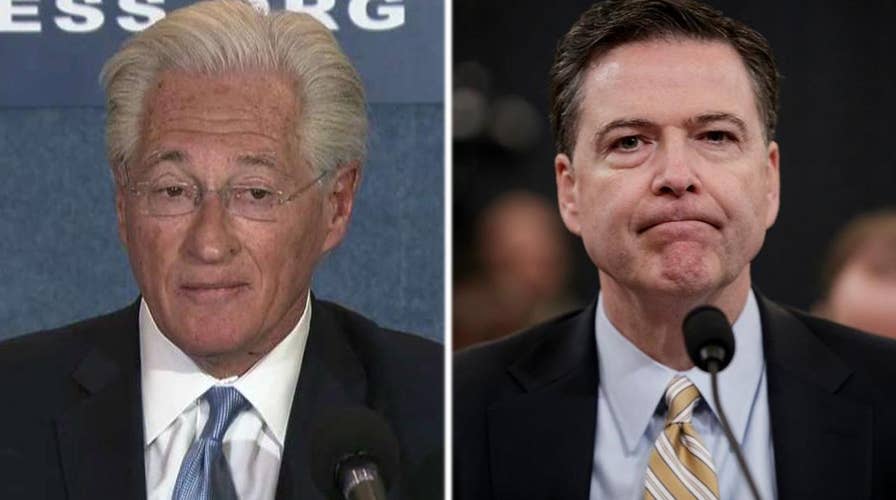Kasowitz: Comey confirmed Trump was not under investigation
President Trump's personal attorney delivers a statement on former FBI director Comey's testimony
Few things are more stigmatizing to addiction recovery than publicly shaming a person who is either in recovery or still struggling to find it. This sometimes occurs with the misguided hope that it will spur that first step to recovery, but usually the intent is far less benevolent.
In the case of Marc Kasowitz, who has flatly denied the contents of a new ProPublica story claiming he has struggled with alcohol problems and received treatment for those problems in recent years, we suspect the effort to publicly shame him had less to do with nudging him towards recovery and more to do with settling scores, kicking a political football, and furthering a political agenda.
To be clear, we do not fault ProPublica for publishing the story. It is a relevant story. Insofar as it deals with his ability to receive a security clearance, it is an important story. We fault our fellow members of the legal profession who decided that it was more important to throw anonymous political hand grenades than to assist someone who may be struggling with addiction issues. They should be ashamed of themselves, especially since the same struggles they are trying to smear Mr. Kasowitz with are rampant and widespread in the legal profession. Indeed, a recent landmark study on attorney drinking revealed that between one-fifth and one-third of currently practicing attorneys qualify as problem drinkers.
While we doubt any honorable motives on the part of these anonymous lawyers, for the sake of argument we will concede it is possible that one or more who provided information about his alleged drinking problem did so in the hope that being publicly shamed would stir Mr. Kasowitz to seek help even in the face of his denial of the allegations. This is a teaching moment for those individuals moving forward. Studies have concluded that not only does public shaming not empower recovery, it can be a lethal combination with addiction as someone may decide to increase drug use to deal with the shame or even more tragically decide that the shame is too much to live with. Public shaming as also been shown to influence public opinion about addiction negatively.
Addiction recovery often requires the help of people empathic to the struggle. In our work helping lawyers confront and overcome addiction, that is among the most important tools we have. The attorneys and others who contributed anonymously to the story about Mr. Kasowitz abandoned that empathy in numerous ways, and in turn abandoned their own humanity. Perhaps the most egregious example is the disclosure of Kasowitz’s alleged stint in residential treatment. Regardless of motive, this was utterly inexcusable—especially for attorneys—and no different than revealing someone’s confidential medical treatment for any other disease.
What could these lawyers have done instead? In a perfect world in which politics do not trump empathy or decency, they could have refused comment and, if they were legitimately convinced that Mr. Kasowitz has a drinking problem, sought to intervene in a productive and humane way. Instead, they took the opportunity to throw shame-filled grenades.
The stigma of seeking help for addiction is already overwhelming in the legal profession, and making anonymous alcoholism allegations about one of the country’s most high-profile lawyers in an attempt to discredit him does nothing but compound that stigma. We urge these anonymous lawyers to think about that and next time instead of throwing a grenade, try throwing a lifeline.

